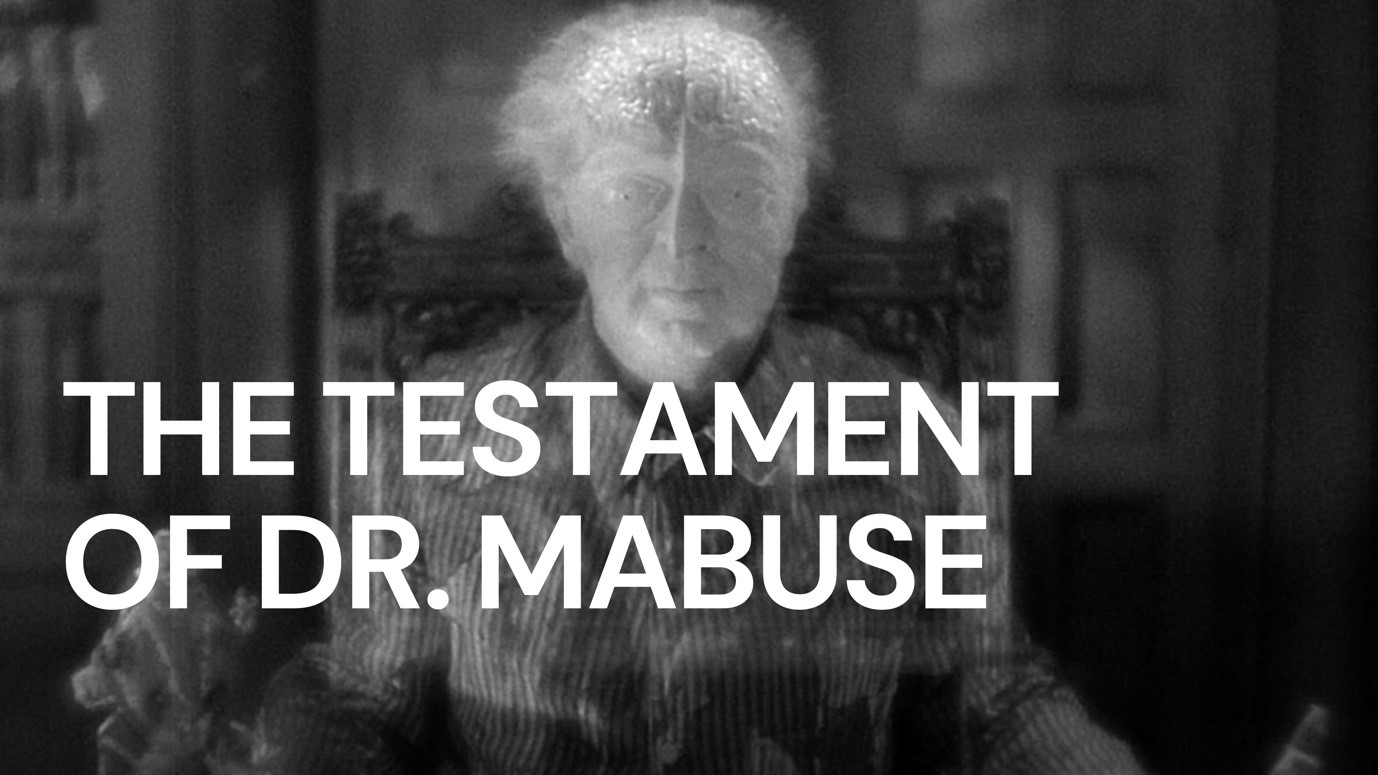The Testament of Dr Mabuse (1933) 
(aka "Das Testament Des Dr Mabuse")
Review: written October 2012
A Testament to Fritz Lang’s genius

Convention has it, that by the mid to late 20's, silent cinema had reached its zenith in storytelling style and artistry. Then sound came along, and overnight, movies became stagebound, static, with none of the flowing camera movements, and actors who had to stand or sit conveniently next to a vase of daffodils or a bush, wherein lay the microphone.. it arguably took decades for Hollywood to rediscover its style, once it found its voice. Compare that version of history to what was happening in Germany - or at least with Fritz Lang, who had demonstrated himself an artist of the silent screen, with his classics Dr Mabuse The Gambler, and of course Metropolis. And yet, here in only his second sound movie, the imaginative use of sound is both and surprising and enjoyable in its inventiveness.. the misdirection of the audience with sound, the inability to hear seemingly key conversations due to carefully constructed background noise, or indeed due to delicately woven silence, is seemingly the mark of a director who had mastered sound over a lifetime. Examples abound, but the hunt in the opening scenes, ending in a silent explosion, or the wonderful segue from ticking bomb to man tapping an egg in identical sound and rhythm, made this movie a treat for me.

But to revel in the sound is only one facet of this surprising movie. The plot, for example is for its time both complex and enigmatic. On one level it is about a hunt for a mastermind criminal. A mysterious figure who is head of a network of counterfeiters, thieves and murderers, whose goal seems to be chaos, not profit. All the evidence points to Dr Mabuse, however he is in a mental asylum, secure and cut off from the world. And yet, somehow, he has extended his reach beyond mere body, to leave a legacy, a testament, if you will, after he is gone. It's not just a crime thriller then - there are genuine moments that enter a more mystical level. And then there are the politics.. the movies politics have long been debated.. was Lang really making a point, when he developed a maniacal leader, who could through ranting and persuasion by violence, use chaos and currency problems to overthrow the state? Certainly Goebbels seemed to think so, and the movie was banned by the Nazis, and Lang left for Europe.

And then of course there are those signature Lang visuals. I loved the moment for example, when we see a lady waiting in the gloom on a wonderful set of sweeping pure lines of art deco stairs, only for a light to come on, changing the image instantly. The scenes involving the spectre of Mabuse are effects which still stand the test of time, and yet Lang knew exactly how to use them, without it dominating or distracting from the movie (although apparently later he regretted their inclusion). And Lang did know how to wring tension out of a scene through visuals as much as through the setup or the plot device. The stairway shootout, the room filling with water, the assassination in the car are all memorable set pieces.
Of course this is a movie almost 80 years old, and so needless to say it has dated.. it's not often now that the speeding vehicles in a chase have to overtake a horse and cart. The acting styles certainly can seem overegged and histrionic compared to more modern style.. though Otto Wernicke's Kommissar Lohmann (The same character from Lang's previous movie, `M') is quite simply a wonderful creation. But despite the issues that come with age, thanks to Lang's unique talent, this is indeed a testament, a fitting tribute to remind us of the care and imagination that can go into making movies, without cgi, without huge budgets, and yet still create something both exciting and of artistic merit. I really recommend you give this a try, even if the thought of an octogenarian movie makes you nervous.

 S M G
S M G